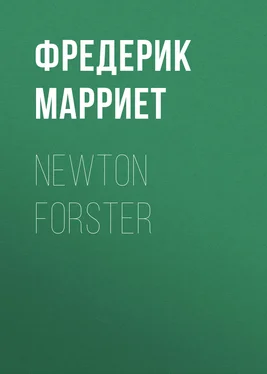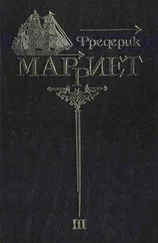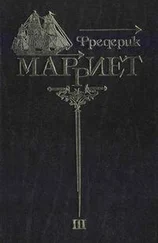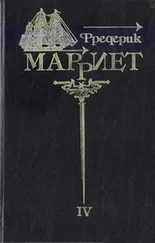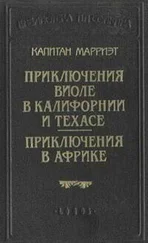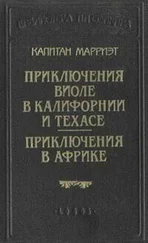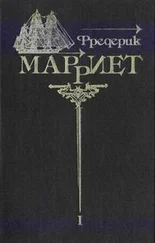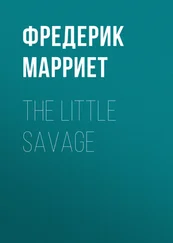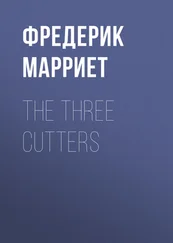Фредерик Марриет - Newton Forster
Здесь есть возможность читать онлайн «Фредерик Марриет - Newton Forster» — ознакомительный отрывок электронной книги совершенно бесплатно, а после прочтения отрывка купить полную версию. В некоторых случаях можно слушать аудио, скачать через торрент в формате fb2 и присутствует краткое содержание. Жанр: Альтернативная история, foreign_antique, foreign_prose, Исторические приключения, на английском языке. Описание произведения, (предисловие) а так же отзывы посетителей доступны на портале библиотеки ЛибКат.
- Название:Newton Forster
- Автор:
- Жанр:
- Год:неизвестен
- ISBN:нет данных
- Рейтинг книги:3 / 5. Голосов: 1
-
Избранное:Добавить в избранное
- Отзывы:
-
Ваша оценка:
- 60
- 1
- 2
- 3
- 4
- 5
Newton Forster: краткое содержание, описание и аннотация
Предлагаем к чтению аннотацию, описание, краткое содержание или предисловие (зависит от того, что написал сам автор книги «Newton Forster»). Если вы не нашли необходимую информацию о книге — напишите в комментариях, мы постараемся отыскать её.
Newton Forster — читать онлайн ознакомительный отрывок
Ниже представлен текст книги, разбитый по страницам. Система сохранения места последней прочитанной страницы, позволяет с удобством читать онлайн бесплатно книгу «Newton Forster», без необходимости каждый раз заново искать на чём Вы остановились. Поставьте закладку, и сможете в любой момент перейти на страницу, на которой закончили чтение.
Интервал:
Закладка:
I remember when the "King's Own" was finished, I was as happy as a pedestrian who had accomplished his thousand miles in a thousand hours. My voluntary slavery was over, and I was emancipated. Where was I then? I recollect; within two days' sail of the Lizard, returning home, after a six weeks' cruise to discover a rock in the Atlantic, which never existed except in the terrified or intoxicated noddle of some master of a merchant vessel.
It was about half-past five in the evening, and I was alone in my after-cabin, quite alone, as the captain of a man-of-war must be, even when in presence of his ship's company. If being sent to sea has been pronounced by the officers and men to be transportation , being the captain of the ship may truly be designated as solitary confinement .
I could not send for any one to whom I could impart the intelligence—there was no one whom I could expect to sympathise with me, or to whom I could pour out the abundance of my joy; for that the service prohibited. What could I do? Why, I could dance; so I sprang from my chair, and singing the tune, commenced a quadrille movement,—Tal de ral la, tal de ral la, lity, lity, lity, liddle-um, tal de ral la, tal—
"Three bells, sir," cried the first lieutenant, who had opened my door unperceived by me, and showed evident surprise at my motions; "shall we beat to quarters?"—
"Certainly, Mr B—," replied I, and he disappeared.
But this interruption produced only a temporary cessation: I was in the height of "Cavalier seul," when his head popped into the cabin—
"All present, and sober, sir," reported he, with a demure smile.
"Except the captain, I presume you are thinking," replied I.
"Oh! no, indeed, sir; I observed that you were very merry."
"I am, Mr B—, but not with wine; mine is a sort of intellectual intoxication not provided for in the Articles of War."
"A what! sir?"
"Oh! something that you'll never get drunk upon, as you never look into a book—beat a retreat."
"Ay, ay, sir," replied the first lieutenant; and he disappeared.
And I also beat a retreat to my sofa; and as I threw myself upon it, mentally vowed that, for two months at the least, I never would take up a pen. But we seldom make a vow which we do not eventually break; and the reason is obvious. We vow only when hurried into excesses; we are alarmed at the dominion which has been acquired over us by our feelings, or by our habits. Checked for a time by an adherence to our resolutions, they gradually recover their former strength, until they again break forth, and we yield to their overpowering influence. A few days after I had made the resolution, I found myself, like the sailor, rewarding it by writing more indefatigably than ever.
So now, reader, you may understand that I continue to write, as Tony Lumpkin says, not to please my good-natured friends, "but because I can't bear to disappoint myself;" for that which I commenced as an amusement, and continued as a drudgery, has ended in becoming a confirmed habit .
So much for the overture. Now let us draw up the curtain, and our actors shall appear upon the stage.
Chapter II
"Boldly I venture on a naval scene,
Nor fear the critics' frown, the pedants' spleen.
Sons of the ocean, we their rules disdain.
Hark!—a shock
Tears her strong bottom on the marble rock.
Down on the vale of death, with dismal cries,
The fated victims, shuddering, roll their eyes
In wild despair—while yet another stroke
With deep convulsion rends the solid oak,
Till like the mine in whose infernal cell
The lurking demons of destruction dwell,
At length, asunder torn, her frame divides,
And crushing, spreads in ruin o'er the tides."
It was in the dreary month of fog, misanthropy, and suicide—the month during which Heaven receives a scantier tribute of gratitude from discontented man—during which the sun rises, but shines not—gives forth an unwilling light, but glads us not with his cheerful rays—during which large tallow candles assist the merchant to calculate his gains or to philosophise over his losses—in short, it was one evening in the month of November of the year l7—, that Edward Forster, who had served many years in his Majesty's navy, was seated in a snug armchair, in a snug parlour, in a snug cottage to which he had retired upon his half-pay, in consequence of a severe wound which had, for many years, healed but to break out again each succeeding spring.
The locality of the cottage was not exactly so snug as it has been described in itself and its interior; for it was situated on a hill which terminated at a short distance in a precipitous cliff, beetling over that portion of the Atlantic which lashes the shores of Cumberland under the sub-denomination of the Irish Sea. But Forster had been all his early life a sailor, and still felt the same pleasure in listening to the moaning and whistling of the wind, as it rattled the shutters of his cottage (like some importunate who would gain admittance), as he used to experience when, lying in his hammock, he was awakened by the howling of the blast, and shrouding himself in his blankets to resume his nap, rejoiced that he was not exposed to its fury.
His finances did not allow him to indulge in luxuries, and the distillation of the country was substituted for wine. With his feet upon the fender and his glass of whiskey-toddy at his side, he had been led into a train of thought by the book which he had been reading, some passage of which had recalled to his memory scenes that had long passed away—the scenes of youth and hope—the happy castle-building of the fresh in heart, invariably overthrown by time and disappointment. The night was tempestuous; the rain now pattered loud, then ceased as if it had fed the wind, which renewed its violence, and forced its way through every crevice. The carpet of his little room occasionally rose from the floor, swelled up by the insidious entrance of the searching blast; the solitary candle, which from neglect had not only elongated its wick to an unusual extent, but had formed a sort of mushroom top, was every moment in danger of extinction, while the chintz curtains of the window waved solemnly to and fro. But the deep reverie of Edward Forster was suddenly disturbed by the report of a gun, swept to leeward by the impetuosity of the gale, which hurled it with violence against the door and front windows of his cottage, for some moments causing them to vibrate with the concussion. Forster started up, dropping his book upon the hearth, and jerking the table with his elbow, so as to dash out the larger proportion of the contents of his tumbler. The sooty coronal of the wick also fell with the shock, and the candle, relieved from its burden, poured forth a brighter gleam.
"Lord ha' mercy, Mr Forster; did you hear that noise?" cried the old housekeeper (the only inhabitant of the cottage except himself), as she bolted into the room, holding her apron in both hands.
"I did, indeed, Mrs Beazely," replied Forster; "it's the signal of a vessel in distress, and she must be on a dead lee-shore. Give me my hat!" and draining off the remainder in his tumbler, while the old lady reached his hat off a peg in the passage, he darted out from the door of his tenement.
The door, which faced to seaward, flew open with violence, as Forster disappeared in the darkness of the night.
The old housekeeper, on whom had devolved the task of securing it, found it no easy matter; and the rain, blown in by the sweeping gale, proved an effectual and unwelcome shower-bath to one who complained bitterly of the rheumatics. At last her object was accomplished, and she repaired to the parlour to re-light the candle which had been extinguished, and await the return of her master. After sundry ejaculations and sundry wonders, she took possession of his arm-chair, poked the fire, and helped herself to a glass of whiskey-toddy. As soon as her clothes and her tumbler were again dry, she announced by loud snores that she was in a happy state of oblivion; in which we shall leave her, to follow the motions of Edward Forster.
Читать дальшеИнтервал:
Закладка:
Похожие книги на «Newton Forster»
Представляем Вашему вниманию похожие книги на «Newton Forster» списком для выбора. Мы отобрали схожую по названию и смыслу литературу в надежде предоставить читателям больше вариантов отыскать новые, интересные, ещё непрочитанные произведения.
Обсуждение, отзывы о книге «Newton Forster» и просто собственные мнения читателей. Оставьте ваши комментарии, напишите, что Вы думаете о произведении, его смысле или главных героях. Укажите что конкретно понравилось, а что нет, и почему Вы так считаете.
